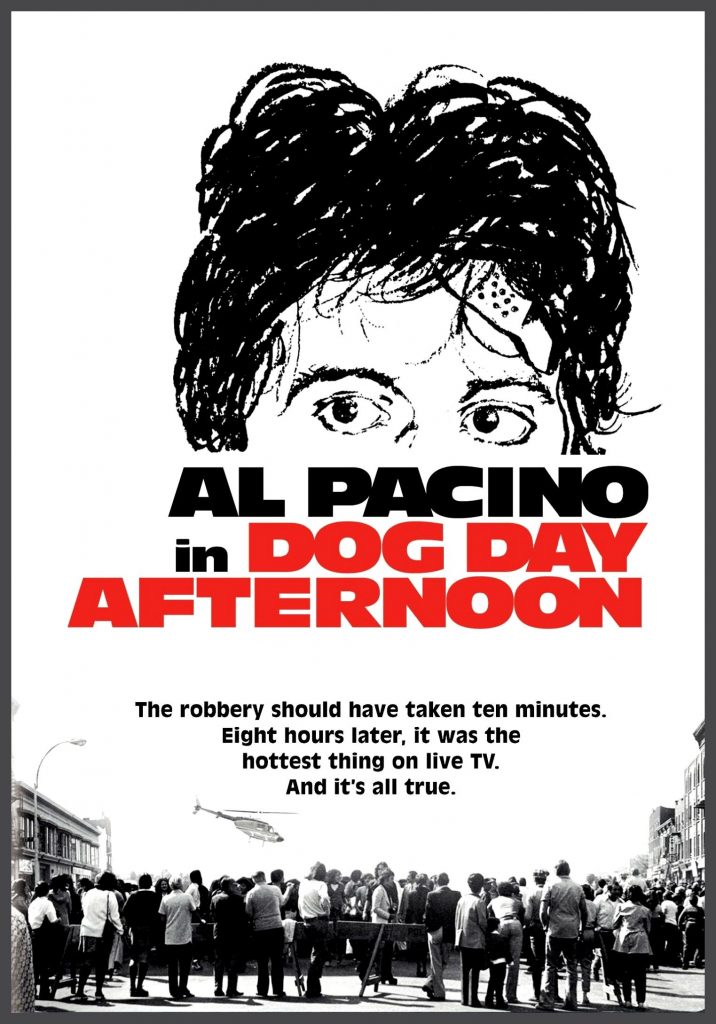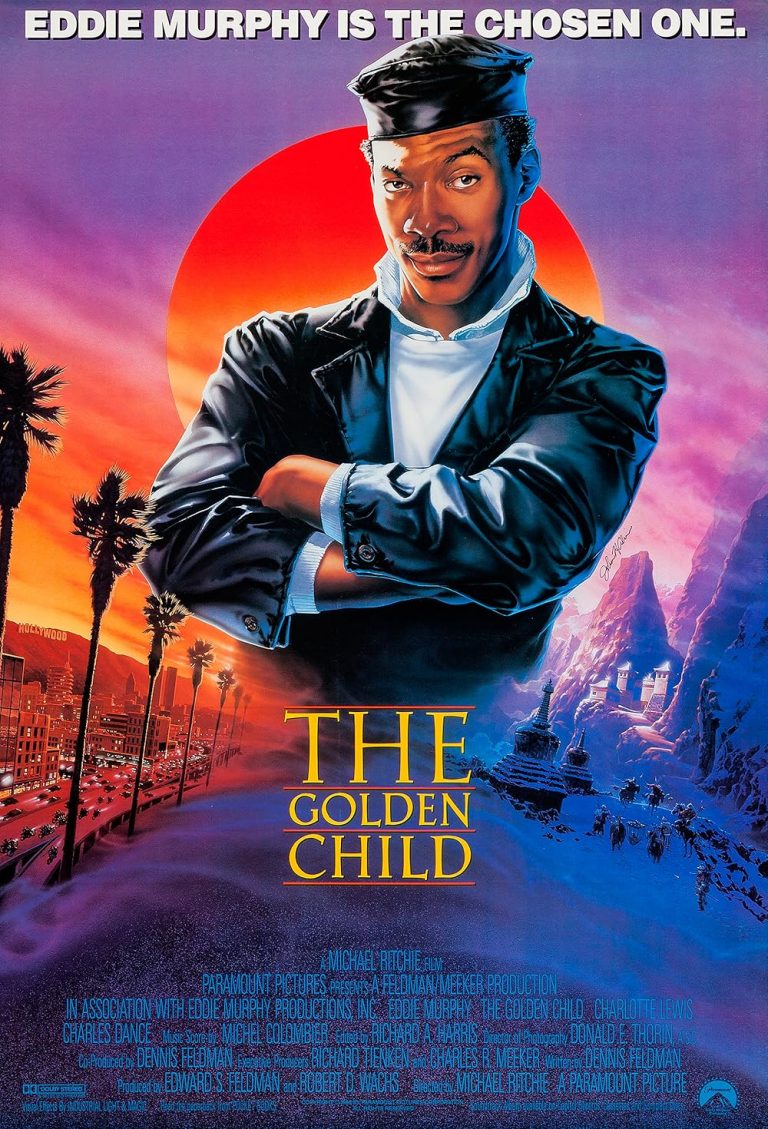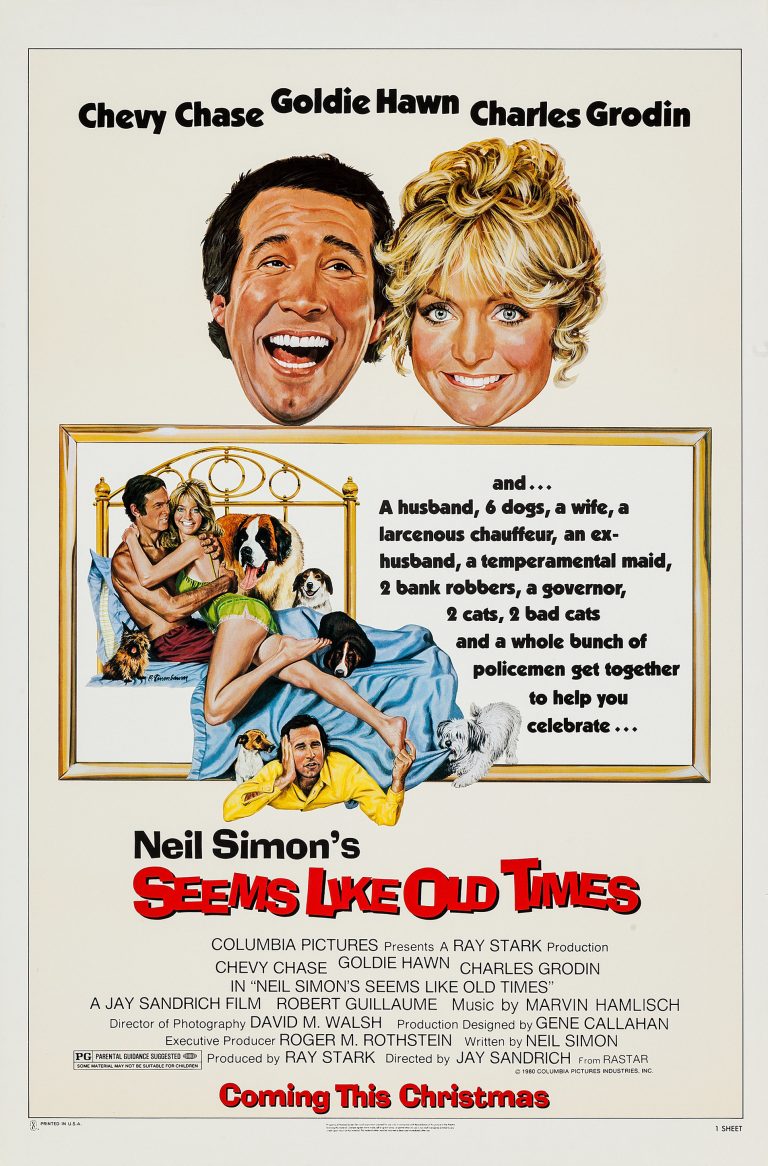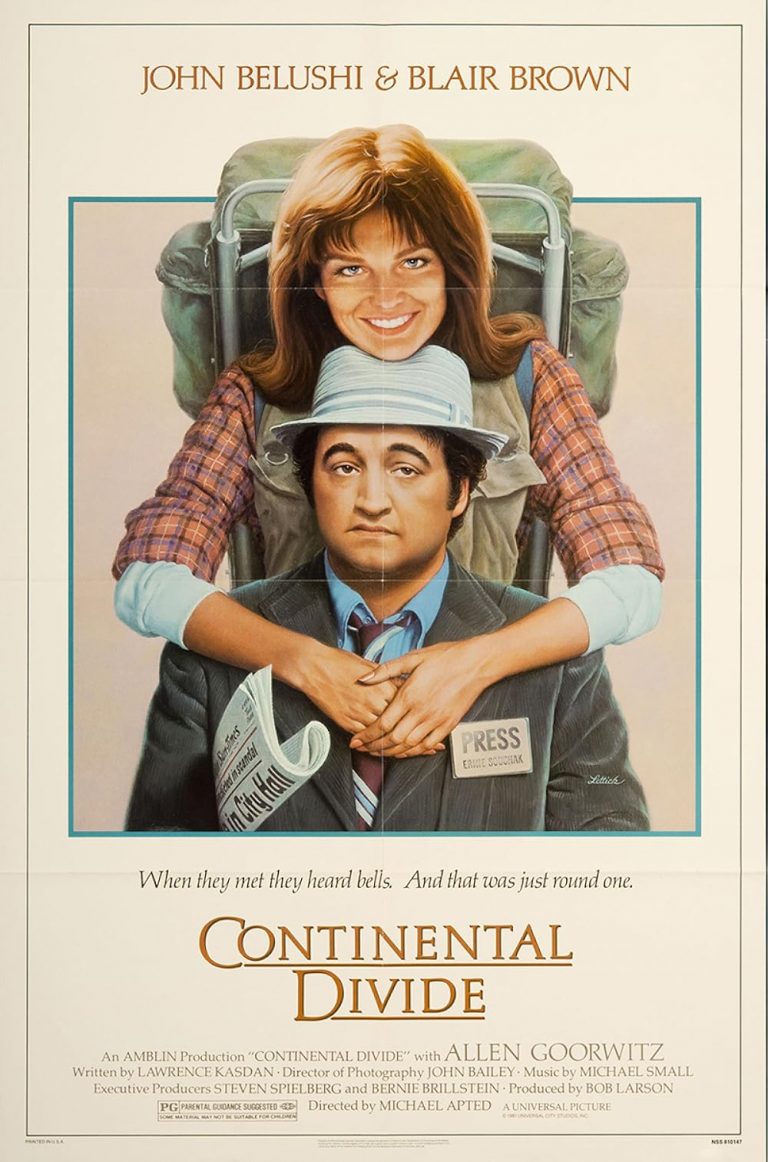Starring: Al Pacino, John Cazale, Charles Durning, Chris Sarandon, and James Broderick
Grade: Classic
Remember when Al Pacino was untouchable?
No matter what roles he may choose in the future, films like Dog Day Afternoon show why he’ll always be remembered as one of the greatest actors of his or any generation.
Summary
In Brooklyn, New York on August 22, 1972, Sonny Wortzik (Pacino) and his two friends Sal (Cazale) and Stevie (Gary Springer) try to rob a bank.
As Sal goes into position and points his gun discreetly at bank manager Mulvaney (Sully Boyar) to get things started, Stevie tells Sonny he wants to bail. The plan has already begun, so Sonny tells him it’s too late. He then pulls out his rifle and officially takes everyone hostage. He has Stevie point his gun at security guard Howard (John Marriott), but Stevie says he can’t do it and wants out. Sal tells Sonny to let him go, so they do. Before he leaves, Stevie tells Sonny he saw a girl, later referred to as Jenny (Carol Kane), hiding under the table from the window. After having Jenny go next to the rest of the hostages and spray painting the cameras, Sonny has Mulvaney open the vault for him, hoping to get this done in a half hour. Sonny catches him trying to use the spot key in hopes of triggering the alarm and yells at him. Then, Mulvaney has his teller Miriam (Marcia Jean Kurtz) collect the money for Sonny. She puts the money in the bag for him but since there was a pickup this afternoon, there’s only $1,100 left. Thinking on the spot, he has the head teller Sylvia (Penelope Allen) collect all the money behind the counter and points out every trick of marked bills or alarm stuff before she can do it because Sonny used to work at a bank. At the same time, the phone is ringing off the hook, so Mulvaney answers it while Sal points the gun at him. After collecting the money from the register and the traveler’s checks, Sonny burns the register book in a trash can. From across the street, an insurance guy named Sam looks in after seeing the smoke. Sonny has Mulvaney talk to Sam after he puts out the fire, and Mulvaney is able to tell him there aren’t any problems.
Sal leads the hostages into the vault, but they can’t close the door because Sylvia has to go to the bathroom. A frustrated Sonny takes her there and is surprised to find Maria (Amy Levitt), another teller who takes extra-long breaks who Sylvia forgot was there. Sonny leads them both back into the vault with the rest of the women and gives them a bucket.
Mulvaney answers the next phone call and tells Sonny it’s for him. A stunned Sonny answers, and it’s Det. Sgt. Eugene Moretti (Charles Durning). They know, and they’re across the street. Sonny even makes eye contact with Moretti through the window until he hides. Now, Sonny and Sal are freaking out. Mulvaney gives him shit for not leaving when he could, and Sylvia blames Sonny for not having a plan. Unfortunately, he did, but the guy he got the information from about the delivery screwed up on the time. As the public and cops surround the building, he tries to make time to think. Jenny gets a phone call from her husband, so Sonny lets her talk to him. He takes the other call, and it’s from Moretti. He tells him he’ll start killing hostages if they try anything and hangs up. Sonny takes a look at the back door, and we can see from the outside that the place is covered with cops. Privately, Sal tells Sonny he’s willing to kill if he needs to. Adding to the mix of problems is Howard who has a serious asthma attack. Confused, Sonny takes Mulvaney to the back to help him block the back door in case the cops try to come through there. They discuss how Mulvaney has bank insurance, prompting Sonny to talk about the Attica Prison riot where 42 people died, the innocent with the guilty. He tells Mulvaney he’s alright. He says that if it comes down to it, he will take a married woman instead of Mulvaney on an escape attempt.
As FBI Agent Sheldon (Broderick) shows up to the scene, media members start to appear. From the barbershop across the street, they set up a direct phone line to the bank. With this, Moretti calls Sonny and after some expected conversation, they agree to Sonny letting one person go as a sign of good will. Sonny lets Howard go since he’s already in the midst of his asthma attack. However, as soon as Howard is let outside, he’s aggressively thrown towards a car and is frisked until Moretti yells at the agents that he’s a hostage. Sonny and Sylvia watch this whole thing unfold by the door, and Moretti blames Sonny for not giving up enough information as Sonny holds the door open. He tells Sonny to come frisk him in the middle of the street to prove he doesn’t have a gun. With Sal holding the rest of the hostages inside and they know it, Sonny is able to come outside without issue. Moretti shows him there are cops surrounding the entire place. After Moretti tries to downplay the charges Sonny will get if he lets the hostages go, Sonny calls him out on the bullshit. He demands to talk to someone else because he knows the implications of what he’s done and how the sentencing will do him in. They both yell at the other cops to stay back when they try to move in, and it incites Sonny’s anger.
He starts screaming “Attica! Attica! Attica!“, and the crowd around the perimeter start to cheer for him as they boo the cops’ actions. Sonny’s family at home hear about the whole mess on the radio, and Sonny’s mother wonders why he didn’t come to her if he needed money.
From outside the door, Sylvia starts answering media questions, so Sonny takes her back inside. Moretti tries to convince Sonny to let her go since she’s already outside, but she refuses because her girls are in there. Sonny comes back inside and gets a phone call from the television news crew from outside, and they have the audacity to ask why he couldn’t just get a job to make money instead of stealing it. He goes on about how hard it is to get a union job and if you work a non-union job like in a bank, you’re not making much at all. It especially wasn’t enough for his wife and kids. Once he cusses, the news crew cuts the feed. Privately, Sonny suggests to Sal they get the FBI involved and how they may make a deal, but a pissed off Sal reminds him their original deal: either they get away clean or they kill themselves. Sal tells Sonny he’s not going back to prison. Sonny considers a different approach. They’re the guys holding all the cards in this situation, so he tells Sal they can demand a helicopter on the roof of the bank, take it to a jet, and fly somewhere nice like Algeria. He tells all the women to call their loves ones because they’ll be coming with, and Sylvia is down. Sal agrees to it too, so Sonny goes out to talk to Moretti. The crowd cheers for Sonny, and you can tell he’s loving the attention. Maria’s boyfriend attacks him but is quickly apprehended by the police. Once things calm down, Sonny tells Moretti his demands of the helicopter and jet, but he also tells him he wants his wife. For everything Moretti does, he will release a hostage. The remaining people will be taken on the jet.
The cops go talk to his wife Angie (Susan Peretz), and she goes on a whole speech about how Sonny has started to fall apart recently and how he’s not himself.
Back at the bank, Sonny hears movement in the back and fires through the window at a cop trying to enter the place. Sonny and Moretti have a shouting match on the street over how much Moretti is telling him, but Moretti insists the cops in the back weren’t going by his orders. Moretti also tells him he has a bus instead of a helicopter to get them to the jet at the Kennedy Airport because they can’t get the helicopter there. Sonny then has Moretti get everyone pizza, pop, and aspirin. After telling everyone what’s going on inside the bank and Mulvaney giving him shit for what he did, Sonny goes back out to collect the food. It’s already paid for, but he uses the marked bills from the bank to give to the delivery guy and throws the rest of the money into the cheering crowd. After Sal chastises Sylvia for wanting to smoke a cigarette for the first time, Sonny’s wife arrives. However, it’s not Angie. It’s Leon Shermer (Sarandon), Sonny’s life partner he’s been cheating on Angie with. The reason he robbed the bank is for Leon’s sex reassignment surgery.
Things are just heating up on this sweltering summer day, and it’s only going to get worse.
My Thoughts:
You’re enthralled from start to finish and when it’s over, there’s a feeling in the air that you’ve experienced filmmaking at its finest. By definition, Dog Day Afternoon is a clear-cut classic. The acting from everyone involved is exceptional, Sidney Lumet’s direction is arguably his best work, and the script keeps you engaged more than any bank robbery film you’ll ever see.
This is acting to the highest degree, with a panicked and erratic Al Pacino pouring out his emotions with gripping intensity. Most of it stems from the whites of Pacino’s widened eyes, his go-to expression in his best dramatic roles. He relies on it and for good reason. Every time he stares that cold look into another character or into the distance, we can see the mind of Sonny racing as he tries to figure out what to do next. As soon as Sonny gets a phone call at the bank when the robbery is in progress, we see it in his bugged-out eyes, especially when he looks over at Sal. It’s out in the open now. The police know. Their quiet robbery will soon be on the news. Now, the clock is ticking. It could’ve all been so simple, and this frenetic energy Pacino has once they’re off to the races pulls you in and never let’s go. Throughout the course of this film, everything goes wrong for Sonny, and it’s forcing him to think off his feet because him and Sal are in too deep. Plus, Sonny’s too good of a person to do anything outright violent which makes things harder because if you don’t show you mean business, the authorities may not take him seriously. Now, on top of not getting nearly enough of the money he planned for and he’s surrounded by law enforcement and the media, he has to find a way out of this without going to prison or dying, keeping the unpredictable Sal happy (who was dead set on either pulling this off or killing himself), and getting whatever is needed for the hostages because they are the only way he has a chance to get out.
It doesn’t get much tougher than this, especially for someone who had no intention on hurting anyone beforehand.
Constantly, we see a frustrated Sonny move from inside of the bank, to the outside, and to the back at a frantic pace to try and keep everyone at bay, just so he can find time to think in the midst of the chaos. It’s riveting! Pacino is all in as the lead, and you feel the desperation and anxiety oozing out of his pores, trying to come up with solutions while keeping everyone happy. It’s a masterclass of acting and reacting in the moment. The emotional intensity in Pacino’s voice, in his movements, and his expressions are all something that should be studied for anyone looking to get into the profession. The emotions and story he’s able to tell as Sonny, and how he’s able to accomplish it in a film set in one location, is purely remarkable. Along with this, John Cazale is also very good as the quiet, unexpectedly funny (“Wyoming“), and uncertain Sal. The interactions between the two are highly entertaining and not only add a lot to both Sonny and Sal’s personalities, with every word spoken between the two being very important to the background of both characters, it eases the tension with well-placed humor. I loved the simplicity of Sal being angry that the news media referred to him as being gay and wanting Sonny to fix it like Sonny doesn’t have bigger problems to worry about. It just shows you the stress Sonny is dealing with because though this isn’t the greatest plan, he’s the brains of the operation and has no one to rely on. Based off of what we learn from Leon and Angie, he’s already unstable to begin with, so this doesn’t bode well for him. On top of that, he has to worry about Sal who may or may not lose it any second.
Scenes like this show us how not a single line of dialogue is wasted between them, or in this script as a whole for that matter.
The dialogue is natural. A lot of what I loved about filmmaking in the 70s was how the new age of realism began to be more commonplace. Realistic dialogue, a raw look and feel to the film, and method acting became more center stage because filmmakers wanted to capture the grittiness and intensity found in real life and real people. The films coming out of this era gave off a much more authentic feel and as a result, it resonated with the masses. For instance, take a look at the honesty of the phone call scene between Sonny and his lover Leon. The movie just stops in its tracks. All the action is put on hold, with Sonny just asking how Leon is and how he’s handling things. It’s as if we go through a full story arc just in this small but pivotal conversation between the two. It goes from the beginning of their relationship, to when it fell apart and why, and how things will proceed going forward. It’s so well done, and the conversation flows like it’s happening in real time between two real people. This may sound stupid at first but think about a lot of older movies you may love. Some talk like they’re in a movie. You’d never catch someone in real life speaking like how some characters talk in a film made during the 1950s. However, in Dog Day Afternoon, this is as real as it gets between these two New Yorkers.
Accompanying this scene is the close-up shot of Pacino. The lights are shut off in the bank, and we just see the scared and unsure look in Sonny’s eyes as the sweat pours down his face, hoping to hear Leon is safe and well and appreciating the lengths he’s gone to help him. Apparently, Lumet filmed the scene without air conditioning to add to the moment. What a great decision!
Keep in mind, Sonny never blames Leon and makes this well known. Though it was for him, Leon never asked him to go this far with it, but Sonny is approaching things the only way he knows how. You can tell Sonny loves Leon and just wants to hear some affirmation for what he’s doing, just so he knows it was done out of a sound mind in love. Then, we see Sonny hold his head in his hands as he’s talking to Leon and bearing his heart to him, realizing there’s no going back on what has happened. He’s gone too far, and there’s no way out. They both have this sort of “Well, I guess this is goodbye”, and it’s devasting. It’s a definitive moment for the film and a sad foreshadowing at the same time. Sonny realizes he’s screwed on all accounts here and couldn’t be more disappointed in hearing Leon’s words in the worst moment of his life. The problem is that he can’t give up now. The world is watching. Following this sorrowful scene is the laugh-inducing, tension-breaking phone call between Sonny and Angie. Making this whole thing about herself and how she feels, Angie goes on and on to the point where we see the rage emerge behind Sonny’s eyes, and he hysterically flips out and hangs up on her.
Well, I can see why he left her.
No, it wasn’t because she got fat. She’s just insufferable. The film makes this point very clear.
The other scene in which the film stops in its tracks again is when Sonny creates his will before they attempt the escape. It’s a bit longer and may not have worked in most scenarios, but it’s so well written and acted to perfection by a fully committed Pacino, that it works on an emotional level most death scenes don’t even have. He may die, and he’s preparing himself and the audience for it. You have to put your heart and soul into a scene like this, and Al Pacino did exactly that.
Regarding the setting, the entire film is based inside and outside the bank, with the exception of the ending. It goes to show you how well the screenplay is written, and how well Sidney Lumet’s handling of it all was, to shape the story of Dog Day Afternoon. With basic research, you can see how many directorial decisions and ideas that were brought to the production from Lumet to heighten the intensity and aura of the film. They filmed on an actual street to give us a sense of realism, he put the camera operators in wheelchairs and roller skates to let Pacino move around and act freely to give the final product a more natural look and to not suffocate the actions of the scene, and he even hyped up a real crowd of extras to dominate the outside setting. This way we’re giving a genuine feel for how a crowd would react to a real-life robbery and how popular Sonny’s actions would make him. They needed to be loud and interactive with Sonny to show how he starts to feed off the attention he gets from them, and they respond enthusiastically. They’re just as important to the scene as all the cop extras that surround the building.
The understated comedy makes Dog Day Afternoon. It’s a lot funnier than people give it credit for. Obviously, the movie is more known for its dramatic points and incredible acting and direction, but the key moments of humor are legitimately laugh-out-loud worthy (like Sal chastising Sylvia for smoking in the most ironically funny scene you’ll see in a while), perfectly placed in the most serious parts of the movie. It entertains on every aspect. Right from the beginning, Stevie leaves Sonny and Sal because he gets cold feet but tries to take the car because he wants to go home. I was cackling already. You know Al Pacino is saving his freak out moment for later in the movie, but he almost loses it on Stevie when he says this, with Sonny reminding him they need the car for the robbery. Sonny’s reaction to the news reporter calling him and suggesting he get a non-union job to make money instead of robbing a bank was even more priceless. Then again, pretty much any phone conversation throughout the course of this film was entertaining. If you’re writing a script and are having trouble finding ways to spice things up in terms of repetitive actions like phone conversations, this film is a great example to show you how to find humor, drama, and important expository dialogue in these scenes all in one.
The acting and directing is at its apex here. With a prime Pacino and Sidney Lumet in the director’s chair, you are captivated by this crazy story of two inept bank robbers on a hot summer day in Brooklyn to the point where you don’t even realize there’s no music in this film to speak of. This is how engaged you are. Even the quietness in the epilogue is deafening. Every minute of this two-hour masterpiece is important to the development of the characters, the plot, and the relationship to how it all plays out. With a funny supporting role by Penelope Allen and the icy cold look of James Broderick as FBI Agent Sheldon, the live atmosphere of Dog Day Afternoon gives you the sense that anything can happen. Not even our main characters know what will happen next.
In a sea of all-time great films from the 1970s, Dog Day Afternoon is among the very best. It’s a generational movie and should be on anyone’s list of “Greatest Movies of All Time”.
Fun Fact: When Al Pacino was going back and forth on if he wanted to star or not, Dustin Hoffman expressed major interest in the lead role.





+ There are no comments
Add yours